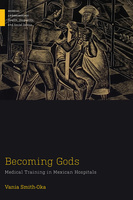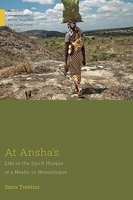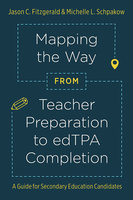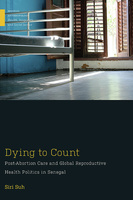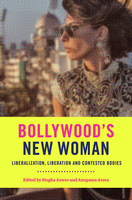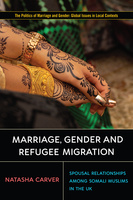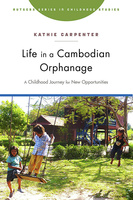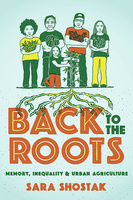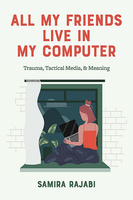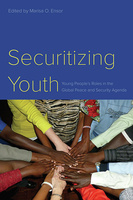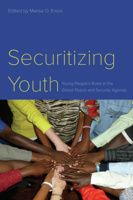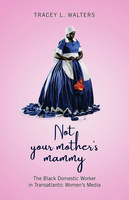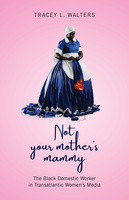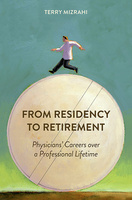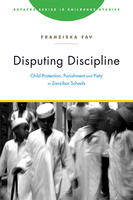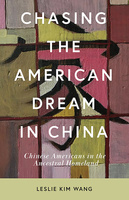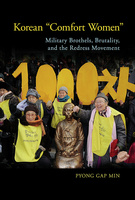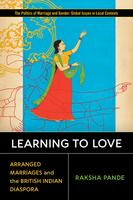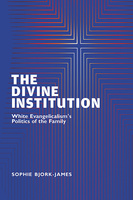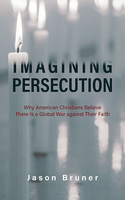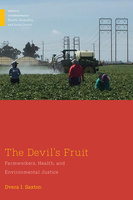
Bold Ideas, Essential Reading since 1936.
Rutgers University Press is dedicated to the advancement and dissemination of knowledge for a wide range of readers. The Press reflects and extends the University’s core mission of research, instruction, and service. They enhance the work of their authors through exceptional publications that shape critical issues, spark debate, and enrich teaching. Core subjects include: film and media studies, sociology, anthropology, education, history, health, history of medicine, human rights, urban studies, criminal justice, Jewish studies, American studies, women's, gender, and sexuality studies, LGBTQ, Latino/a, Asian and African studies, as well as books about New York, New Jersey, and the region.
Rutgers also distributes books published by Bucknell University Press.
Becoming Gods
Medical Training in Mexican Hospitals
At Ansha's
Life in the Spirit Mosque of a Healer in Mozambique
Apocalypse Cinema
Precarity and Belonging
Labor, Migration, and Noncitizenship
Precarity and Belonging
Labor, Migration, and Noncitizenship
Martin Scorsese and the American Dream
Mapping the Way from Teacher Preparation to edTPA® Completion
A Guide for Secondary Education Candidates
Japan and American Children's Books
A Journey
Haunted Homes
Haiti Fights Back
The Life and Legacy of Charlemagne Péralte
Dying to Count
Post-Abortion Care and Global Reproductive Health Politics in Senegal
Dreams of Archives Unfolded
Absence and Caribbean Life Writing
Bollywood’s New Woman
Liberalization, Liberation, and Contested Bodies
Scarlet and Black, Volume Three
Making Black Lives Matter at Rutgers, 1945-2020
Scarlet and Black (3 volume set)
Scarlet and Black documents the history of Rutgers’s connection to slavery, which was neither casual nor accidental—nor unusual. Like most early American colleges, Rutgers depended on slaves to build its campuses and serve its students and faculty; it depended on the sale of black people to fund its very existence.
A COVID Charter, A Better World
Folk Stories from the Hills of Puerto Rico / Cuentos folklóricos de las montañas de Puerto Rico
Esta nueva y emocionante antología bilingüe reúne cuentos populares puertorriqueños que se transmitieron oralmente durante generaciones antes de ser transcritos comenzando en 1914 por el equipo del famoso antropólogo Franz Boas. La colección incluye historias sobre personajes históricos como el pirata Roberto Cofresí, versiones criollas de “Blanca Nieves” y “Cenicienta” y otros queridos personajes locales como la amable cucaracha Cucarachita Martina.
The Street
A Photographic Field Guide to American Inequality
The Latinx Files
Race, Migration, and Space Aliens
Playing with History
American Identities and Children’s Consumer Culture
Pink and Blue
Gender, Culture, and the Health of Children
Marriage, Gender and Refugee Migration
Spousal Relationships among Somali Muslims in the United Kingdom
This ethical and poetical ethnography analyzes the upheavals to gender roles and marital relationships brought about by refugee migration to the UK. Unmoored from the socio-cultural norms that made them men and women, Somali migrants find "everything" to be "different, mixed up, upside down." The book finds that the most significant catalysts for challenging harmful gender practices are a combination of the welfare system and Islamic praxis.
Life in a Cambodian Orphanage
A Childhood Journey for New Opportunities
Branding Brazil
Transforming Citizenship on Screen
Back to the Roots
Memory, Inequality, and Urban Agriculture
American Hotel
The Waldorf-Astoria and the Making of a Century
All My Friends Live in My Computer
Trauma, Tactical Media, and Meaning
Securitizing Youth
Young People’s Roles in the Global Peace and Security Agenda
Securitizing Youth
Young People's Roles in the Global Peace and Security Agenda
The Guise of Exceptionalism
Unmasking the National Narratives of Haiti and the United States
Not Your Mother's Mammy
The Black Domestic Worker in Transatlantic Women’s Media
Not Your Mother's Mammy
The Black Domestic Worker in Transatlantic Women's Media
Not Your Mother’s Mammy examines how black artists, mostly women of the diaspora, many of them former domestics, reconstruct the black female subjectivities of domestics in black media. In doing so, they undermine and defamiliarize the reductive, one-dimensional images of black domestics as perpetual victims lacking voice and agency. In line with international movements like #MeToo and #timesup, the women in these stories demand to be heard.
Mixed-Race Superheroes
Mixed-Race Superheroes
From Residency to Retirement
Physicians' Careers over a Professional Lifetime
From Memory to History
Television Versions of the Twentieth Century
Freedom’s Ring
Literatures of Liberation from Civil Rights to the Second Wave
Disputing Discipline
Child Protection, Punishment, and Piety in Zanzibar Schools
Chasing the American Dream in China
Chinese Americans in the Ancestral Homeland
Korean "Comfort Women"
Military Brothels, Brutality, and the Redress Movement
Learning to Love
Arranged Marriages and the British Indian Diaspora
Toxic and Intoxicating Oil
Discovery, Resistance, and Justice in Aotearoa New Zealand
When oil and gas exploration was expanding across Aotearoa, New Zealanders faced the typically distinct problems of oil spills, hydraulic fracturing, offshore exploration, climate fears, and disputes over unresolved Indigenous claims nearly simultaneously. Collectively, these grievances created the foundation for an organized civil society to construct and then magnify a comprehensive critical oil narrative--in dialogue, practice, and aspiration. Community advocates and socioecological activists mobilized for their health and well-being, for their neighborhoods and beaches, for Planet Earth and Planet Ocean, and for terrestrial and aquatic species and ecosystems. In this allied ethnography, quotes are used extensively to convey the tenor of some of the country’s most passionate and committed people. By analyzing the intersections of a social movement and the political economy of oil, Patricia Widener reveals a nuanced story of oil resistance and promotion at a time when many anti-drilling activists believed themselves to be on the front lines of the industry’s inevitable decline.

